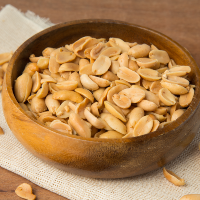
Why is Vitamin D important?
Vitamin D is needed to keep our bones healthy by helping to control the amount of calcium and phosphate in our bodies and also appears to play a role in muscle function. Along with several other nutrients, Vitamin D supports the normal functioning of the immune system, but there is no evidence that Vitamin D alone can protect or treat infection.
Some people say that Vitamin D is not really a vitamin because our bodies can make it when our skin is exposed to sunlight, which is why is it known as the sunshine vitamin. However, in the UK, there are concerns that we do not make enough to keep our bones and muscles healthy

What type is suitable for vegans?
When choosing a supplement, be aware that some types of Vitamin D are not suitable for vegans. Vitamin D2 is not derived from animals. Vegan Vitamin D3 can be derived from lichen, but many supplements contain Vitamin D3 derived from the lanolin found in sheep’s wool.
Vitamin D absorption
Vitamin D is fat-soluble. This means that you can help your body to absorb this nutrient by consuming your supplement with a meal or snack containing fat. Healthy sources of fat include peanuts, nuts, seeds, avocado and small amounts of vegetable (rapeseed) oil, sunflower seed oil, olive oil and spreads.

As our main source of Vitamin D comes from direct sunlight, even if you are eating a varied and balanced diet, including foods fortified with Vitamin D, you could still be at risk of a Vitamin D deficiency. Public health authorities in the UK recommend that everyone takes a supplement containing Vitamin D from October to March as a minimum to maintain sufficient Vitamin D levels for bone and muscle health. 1,2,3,4 Taking a Vitamin D supplement throughout the year is a more important consideration for the following groups:
- Under-fives (apart from babies having 500 ml or more of formula per day)
- People who do not go outside regularly
- People who cover most of their skin when outside
- People with dark skin – for example someone who has an African, African-Caribbean or South Asian background may not make enough Vitamin D from sunlight.
It may also be prudent for other groups to consider year-round supplementation because they are at greater risk of low Vitamin D:
- Pregnancy and breastfeeding
- People over 65 years old – their skin is not as good at making Vitamin D
UK Vitamin D Recommendations5:
|
Group |
Vitamin D recommendation |
|
Infants less than 1 year old* |
Safe Intake of 8.5 – 10 mcg (micrograms) per day |
|
Children aged 1 – 3 years old |
Safe Intake of 10 mcg per day |
|
People aged 4+ years |
Reference Nutrient Intake of 10 mcg per day |
*apart from infants consuming 500 ml or more of infant formula daily, which has added Vitamin D.
What does this mean?8
-
A Reference Nutrient Intake (RNI) represents the amount of a nutrient that is likely to meet the needs of 97.5% of the population.
-
A Safe Intake is a level or range of intakes considered to pose no risk of deficiency and below a level where there is a risk of undesirable effects.
If you choose to boost your level of Vitamin D by exposing your skin to sunlight during spring and summer, make sure that it does not burn. Aim to spend short periods exposing your skin to sunlight daily, particularly between 11am and 3pm.
Vitamin D tip to take away
- If you choose to boost your levels of Vitamin D by exposing your skin to sunlight between April and September, aim to spend short periods exposing your skin to sunlight daily, particularly between 11 am and 3 pm.
- In the UK, Vitamin D supplementation is recommended from October to March as a minimum.
Further information
You might be interested to check out the following webpages:
- Bone health
- Nutrition overview
- Life stages, including pregnancy, breastfeeding and different age groups
References
- NHS. Vitamin D; 2020 https://www.nhs.uk/conditions/vitamins-and-minerals/vitamin-d/ (accessed 21 May 2024)
- Public Health Agency. Vitamin D and you; 2020 https://www.publichealth.hscni.net/publications/vitamin-d-and-you-0 (accessed 21 May 2024)
- Public Health Scotland. Vitamin D and you; 2020 https://www.publichealthscotland.scot/publications/vitamin-d-and-you/ (accessed 21 May 2024)
- Welsh Government. Vitamin D intake: revised guidelines (WHC/2016/043); 2016 https://www.gov.wales/vitamin-d-intake-revised-guidelines-whc2016043 (accessed 21 May 2024)
- Scientific Advisory Committee on Nutrition. SCAN vitamin D and health report; 2016 https://www.gov.uk/government/publications/sacn-vitamin-d-and-health-report (accessed 21 May 2024)
- European Food Safety Authority and Scientific Advisory Committee on Nutrition. Joint explanatory note by the European Food Safety Authority and the UK Scientific Advisory Committee on Nutrition regarding dietary reference values for vitamin D; 2016 https://www.efsa.europa.eu/sites/default/files/documents/news/explanatory_note_EFSA_SACN_vitaminD.pdf (accessed 21 May 2024)
These are general guidelines about nutrition. If you have concerns about your diet, please talk to your doctor about seeing a dietitian. Discussing the use of supplements with a health professional will help to ensure that they are suitable for you.
